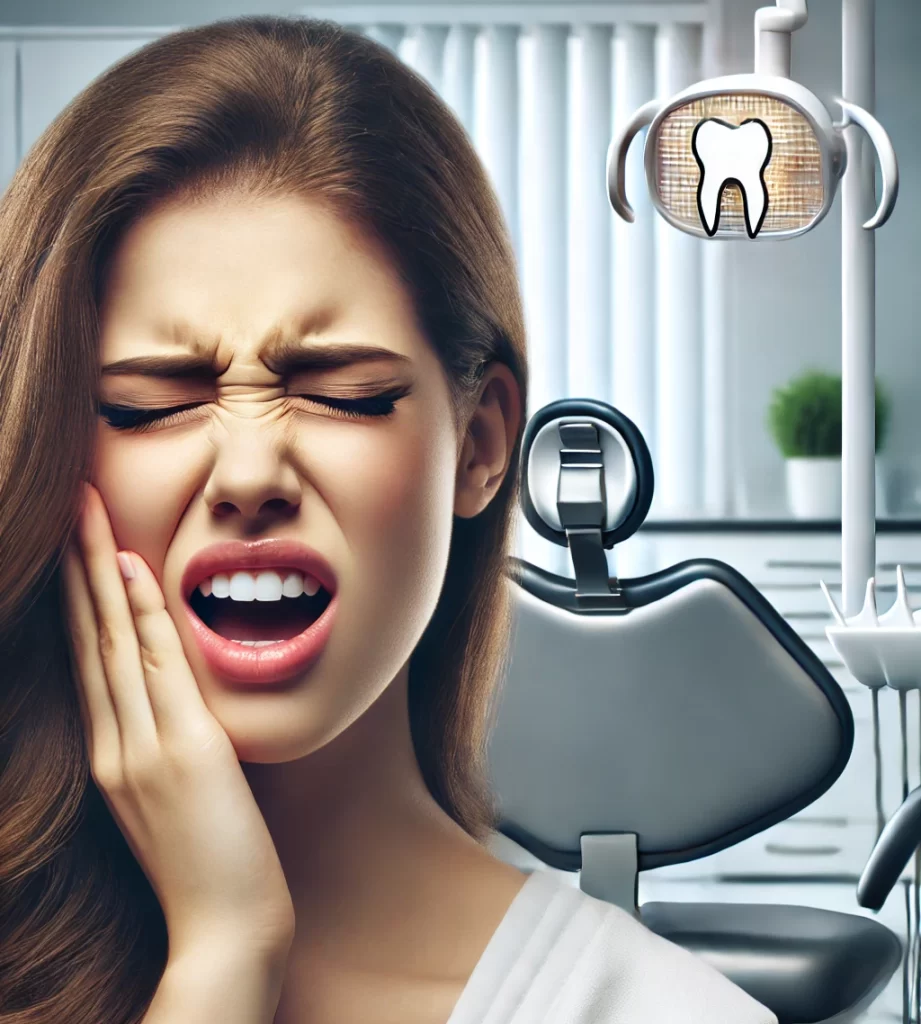Toothache Relief: Don’t Fall for the 3-Second Cure Myth

Throbbing Toothache? Don’t Believe the 3-Second Cure Myth
Toothaches are infamous for their ability to disrupt even the most productive day, turning it into a haze of pain and frustration. Whether it’s a sharp jolt of discomfort or a relentless, dull ache, tooth pain commands attention and leaves us desperate for relief. Amid this struggle, you may have come across online claims promising to “kill the tooth nerve pain in 3 seconds permanently.” While the allure of instant relief is undeniable, this promise falls squarely into the category of myths.
The Reality: There Is No Instant Cure for Tooth Pain
Permanently killing the nerve in your tooth in three seconds is impossible. Moreover, attempting DIY solutions that promise to achieve this can be not only ineffective but also harmful. Neglecting professional care for a toothache might lead to worsening symptoms and more severe complications, but fear not! This comprehensive guide is designed to equip you with practical, safe, and effective methods to manage tooth pain while stressing the importance of professional dental care.
Understanding Tooth Pain: What’s Really Going On?
Toothaches are more than a minor inconvenience; they’re a signal that something’s wrong beneath the surface. The pain usually stems from issues involving the tooth pulp, a soft tissue inside the tooth containing nerves and blood vessels. When this pulp becomes irritated or inflamed, pain signals are sent to the brain, creating that uncomfortable ache.
Common causes of tooth pain include:
- Cavities: When bacteria feed on sugar and cause tooth decay, cavities develop, potentially leading to pulp irritation and pain.
- Gum Disease: Plaque buildup on teeth and gums can cause inflammation, eventually affecting the underlying bone and tooth pulp.
- Cracked or Broken Teeth: Physical trauma can expose sensitive pulp, leading to pain.
- Abscesses: Infections that form pus-filled pockets around the tooth can cause intense pain, swelling, and even fever.
The type of pain you feel can hint at the underlying issue. Sharp, sudden pain may suggest a cavity near the nerve, while a dull, throbbing ache could indicate an abscess. However, it’s important to note that self-diagnosis isn’t a substitute for professional care. Only a dentist can accurately identify the cause of your pain and recommend the appropriate treatment.
Temporary Pain Relief at Home: Effective Remedies to Consider
While professional care is essential, there are several safe and effective home remedies to temporarily ease your discomfort while you wait for your dental appointment:
1. Cold Compress
Applying a cold compress to your cheek near the affected tooth can reduce inflammation and numb the area. Wrap ice cubes in a towel and hold it against your cheek for 15-minute intervals.
2. Saltwater Rinse
Mixing a teaspoon of salt in a glass of warm water creates a natural antiseptic rinse. Swish the solution around your mouth to disinfect the area and dislodge food particles.
3. Clove Oil (Use with Caution)
Clove oil’s natural numbing properties can offer relief. Dilute a drop with a carrier oil and apply it gently around the affected area using a cotton swab. Avoid direct application on the tooth itself.
4. Over-the-Counter Pain Relievers
Ibuprofen or acetaminophen can help manage pain. Follow dosage instructions and remember that medication addresses symptoms, not the root cause.
5. Dietary Adjustments
Avoid hot, cold, sugary, and hard foods. Opt for soft foods like yogurt or applesauce, and stay hydrated to promote healing.
6. Gentle Flossing
Carefully floss around the affected tooth to remove food particles. Be gentle to avoid worsening the inflammation.
7. Elevation
Keeping your head elevated can reduce pain and swelling. Use extra pillows while sleeping to promote better drainage.
8. Mind-Body Techniques
Meditation and deep breathing exercises can help reduce anxiety and provide some pain relief through relaxation.
Note: While these remedies provide temporary relief, they do not address the underlying cause of your tooth pain. A dental appointment remains essential for long-term care.
Why Professional Dental Care is Crucial for Toothaches
Ignoring a toothache or relying solely on temporary fixes can lead to more severe dental issues down the line. Here’s why you should never skip professional care:
Early Diagnosis and Treatment:
Dentists can accurately diagnose the cause of your toothache and offer prompt treatment, often when the problem is still manageable.Tailored Treatment Options:
Depending on the diagnosis, treatment may include fillings, root canals, crowns, or extractions. Prompt care prevents further damage.Addressing Underlying Issues:
Toothaches often signal larger issues like gum disease or abscesses. Dentists treat the pain and the root cause to prevent future problems.Preserving Your Smile:
By addressing issues early, you reduce the risk of tooth loss and maintain your natural smile.Overall Health Benefits:
Oral health is linked to overall health, affecting conditions like heart disease, stroke, and diabetes. Regular care benefits your whole body.Cost-Effectiveness:
Early intervention is often less costly than treating advanced issues. Many dental offices offer flexible payment plans.
Preventing Toothaches: Proactive Steps for a Healthy Smile
Brush and Floss Daily:
Use fluoride toothpaste and brush twice a day. Floss to remove particles from between teeth.Use Fluoride:
Strengthen your enamel with fluoride toothpaste or mouthwash.Regular Dental Checkups:
Visit the dentist every six months for cleanings and exams.Dietary Choices Matter:
Limit sugary foods and drinks. Eat a balanced diet rich in fruits and vegetables.Avoid Bad Habits:
Smoking and heavy drinking increase your risk of dental issues.Protect Your Teeth:
Wear a mouthguard during sports, and avoid using your teeth as tools.Manage Grinding:
Use a mouthguard if you grind your teeth at night.
Remember: Prevention is better than cure. By adopting these habits, you can reduce the risk of toothaches.
Natural Pain Relief (Use with Caution)
- Peppermint Tea: A cooling rinse may offer temporary relief.
- Acupressure: Applying pressure to certain points may help manage pain.
Important Note: Natural remedies do not replace professional care and should only be used as temporary measures.
Final Thoughts: Don’t Let Toothaches Take Over
Toothaches are common but treatable. While quick-fix myths might be tempting, professional care is key to addressing the root cause and ensuring lasting relief. By understanding the causes of toothaches, utilizing temporary relief methods, and prioritizing preventive care, you can protect your smile for years to come.
Invest in your oral health today for a pain-free, confident tomorrow!







